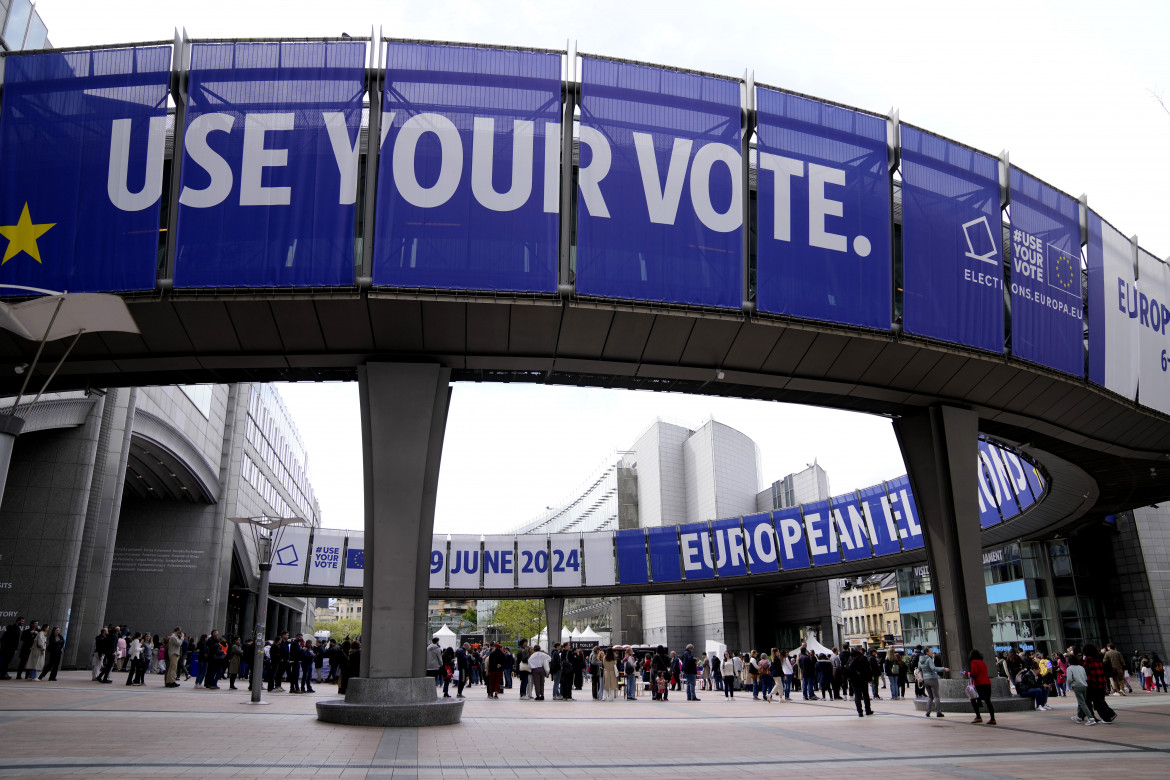Analysis
With balance of power shifting right, the European Commission is the prize
How long will we have to wait to see the new Commission formed? After the elections, the complicated game of appointments will begin, also involving the more-or-less behind-the-scenes agreements between the leaders of different European countries.

Results are rolling in about the composition of the new European Parliament. But there’s still a long road ahead until the new Commission, the engine of EU government, is set up. The outgoing executive, led by Ursula von der Leyen, is the one that first passed the Green Deal, then put it on the backburner, turning towards war policies to counter Moscow. We already know for certain that one of the priorities of the new European government will be rapprochement towards Kyiv (along with Moldova and Georgia) and common defense, which can no longer be postponed because of the increasing U.S. disengagement, which will only accelerate if Donald Trump returns to the White House after the November 5 elections.
But how long will we have to wait to see the new Commission formed? After the elections, the complicated game of appointments will begin, also involving the more-or-less behind-the-scenes agreements between the leaders of different European countries. Most likely, this phase will end in late autumn. And even though at the European Parliament they’re stressing that “any scenario is possible,” some deadlines already seem to be set in stone, in a very precise time sequence.
As early as Tuesday, June 11, European Parliament President Roberta Metsola – a Maltese Christian Democrat from the EPP who would be happy to keep her seat – could convene the outgoing parliamentary groups to take stock of the outcome of the vote. In the following days, old and new political groups will take shape. There might be surprises on the right, as the AfD delegation, expelled a few days ago from Identity and Democracy (ID), of which Salvini and Le Pen are members, considers the idea of starting a new group, while the liberals of Renew Europe could break with their Dutch members that supported the establishment of the new government together with the populist Wilders.
However, these are trifling matters if one looks at where the real high stakes lie, namely in the attempts by the two already-existing right-wing groups (ID and the conservatives of the ECR, headed by Giorgia Meloni) to pull the relative majority party, the EPP, to their side, thus trying to form a majority shifted to the right. At the same time, the leadership of the EU executive will not be selected by Parliament, but by the European Council, that is, the heads of state and government of the 27.
One week after the vote, on July 17, the leaders will meet at the Europa Palace in Brussels for an informal summit where a number of options will be put on the table. At this point, we know that another term for von der Leyen is strongly opposed by French President Macron, who appears to have swayed German Chancellor Scholz to his side. Paris might favor an executive led by Mario Draghi (whom others would want as a successor to Belgian liberal Charles Michel as president of the European Council), but a number of names have already been floated (and haven’t gone anywhere) for the head of the Commission: from Greek Prime Minister Mitsotakis (PP) to Estonian Kaja Kallas (Liberals).
Decision time will be at the June 27-28 summit. In addition to ironing out the strategic priorities of the new policy cycle, the leaders will have to select a trio of names for the three top posts. The choice of Commission president should be made in agreement with the European Parliament, since the latter will have to approve the appointment by a vote in September. If that hurdle is passed, after the same Parliament has individually approved (or rejected) the commissioners proposed by the EU countries between October and November, the candidate for Council president will have to come before the European Parliament once more for a final confidence vote.
The Giorgetti case, much talked about in recent days, shows how much tension there can be over each country having to put forward a single name, when balances between government allies must be taken into account.
Finally, the cumbersome process could be concluded by November, the month in which the new president of the European Council will also take office, taking over Michel’s post. Those considering Draghi for the position must take into account that the Socialists are claiming this post, with a shortlist of names ready, including Spanish Prime Minister Sánchez, the Danish Mette Frederiksen and the Portuguese António Costa.
Originally published at https://ilmanifesto.it/allargamento-e-difesa-la-commissione-che-verra on 2024-06-06
